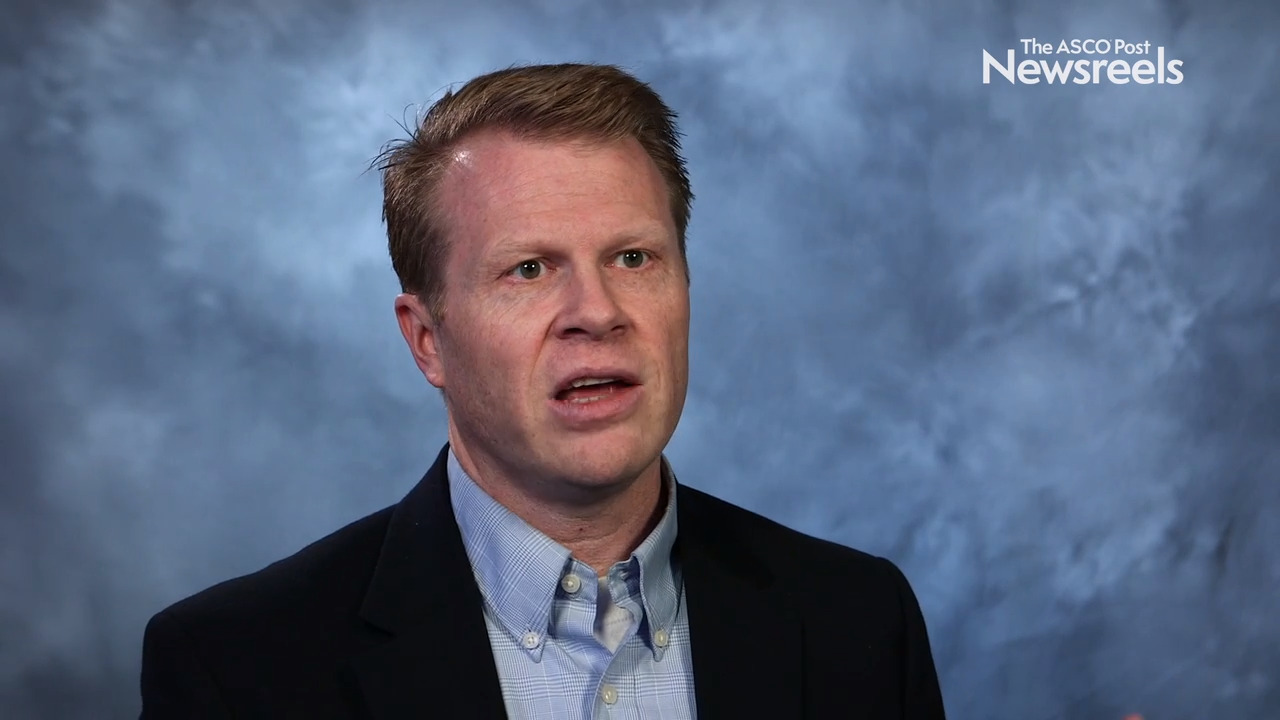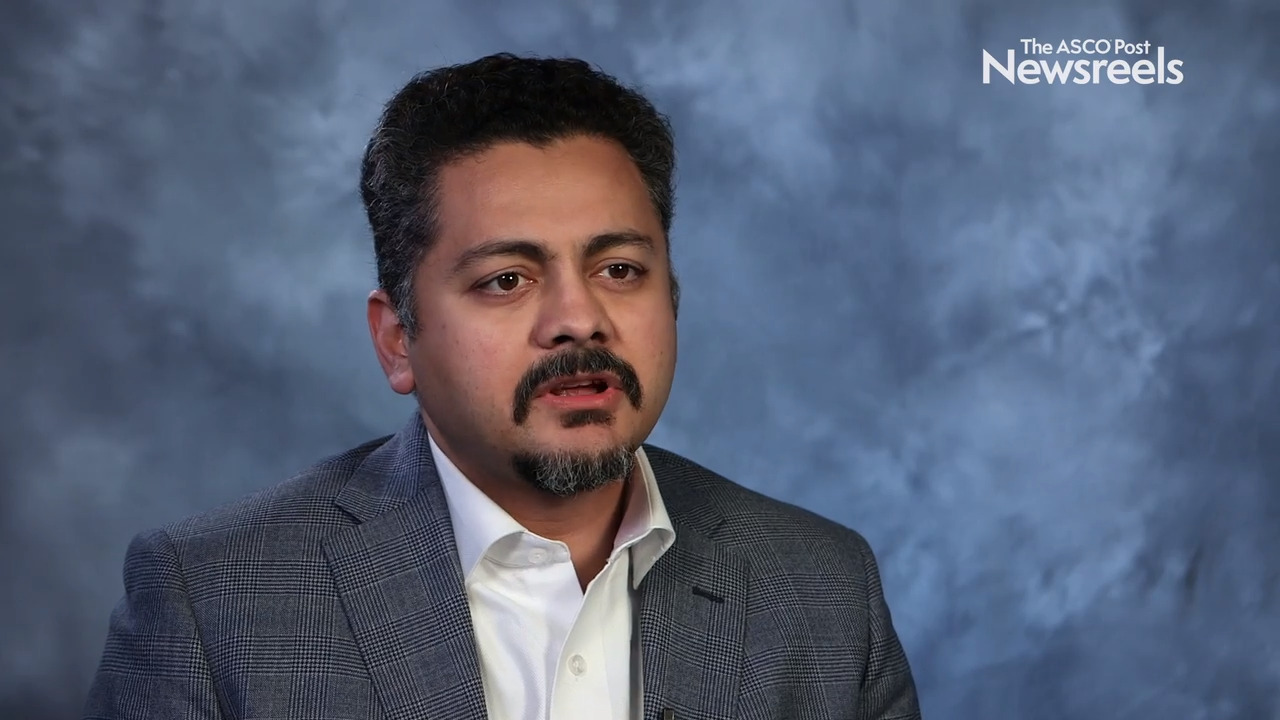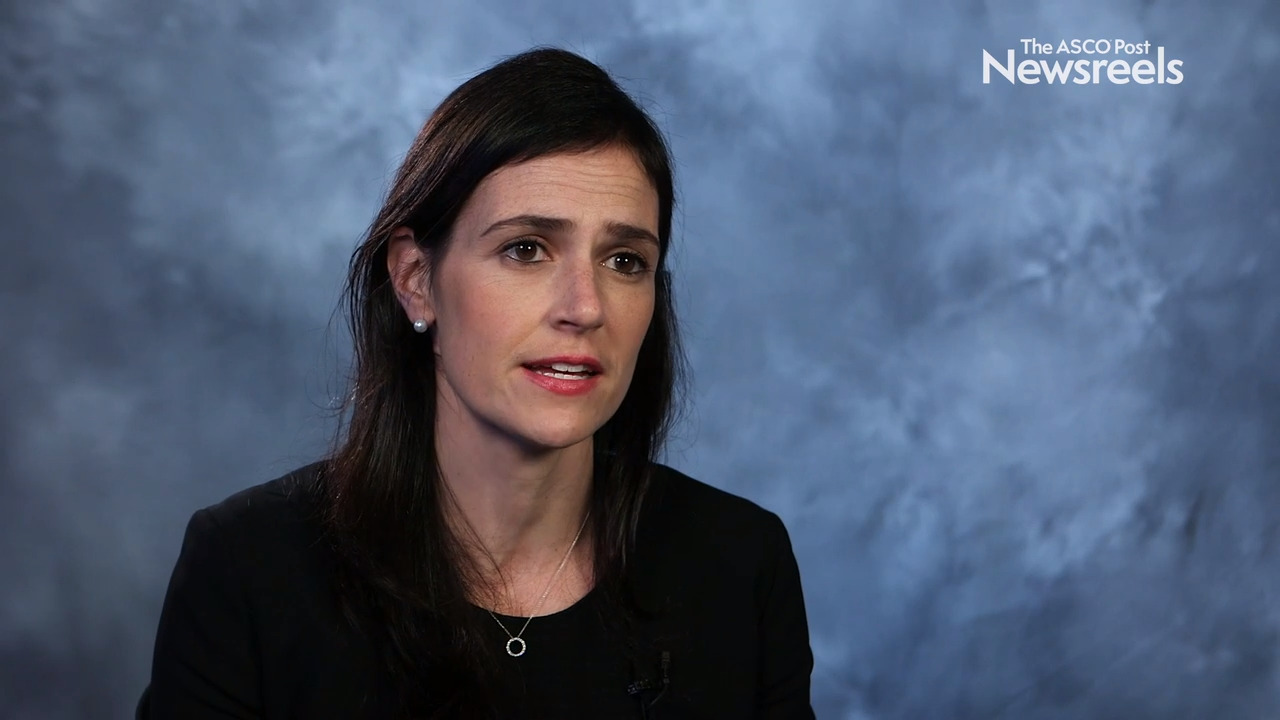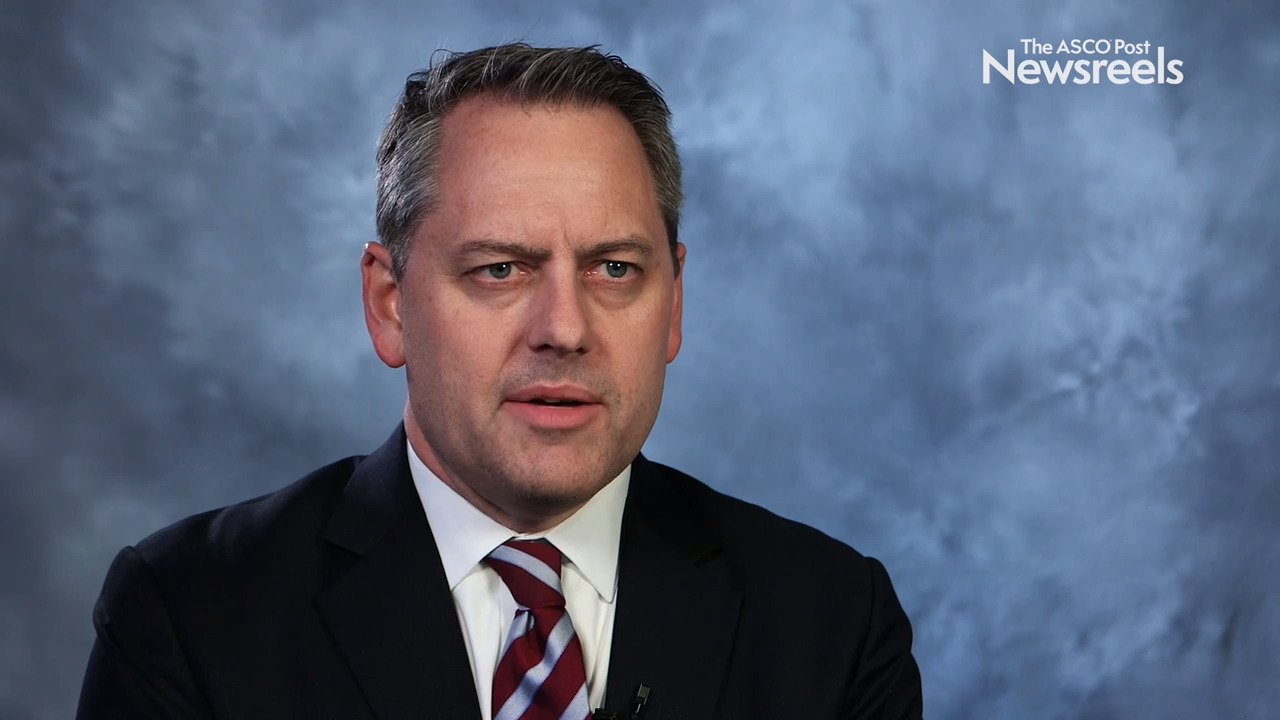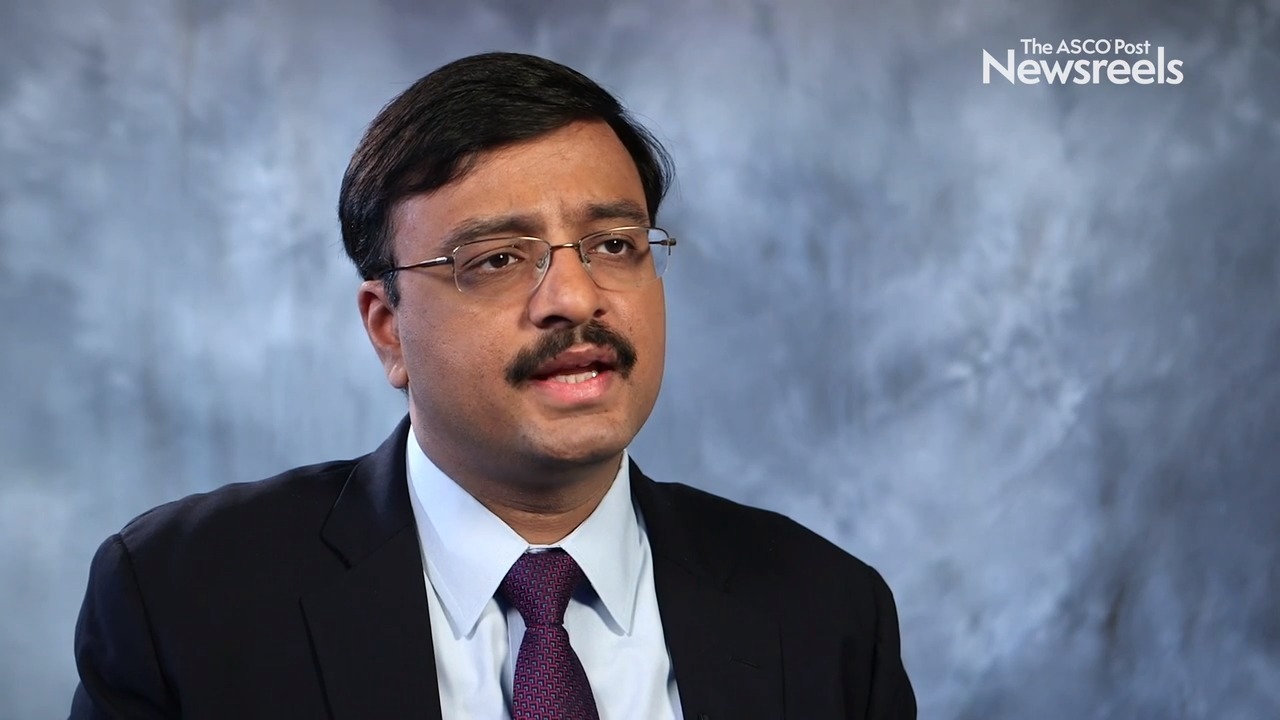Patrick A. Brown, MD, on B-Cell ALL in Children, Adolescents, and Young Adults: Blinatumomab vs Chemotherapy
2019 ASH Annual Meeting & Exposition
Patrick A. Brown, MD, of Johns Hopkins University, discusses phase III findings from a Children’s Oncology Group Study showing that blinatumomab was superior to chemotherapy in terms of efficacy and tolerability for young patients as a post-reinduction therapy in the setting of high- and intermediate-risk first relapse of B-cell acute lymphoblastic leukemia (Abstract LBA-1).
Tait D. Shanafelt, MD, of Stanford University, discusses extended follow-up data that show ibrutinib plus rituximab improved clinical outcomes vs the standard therapy of fludarabine/cyclophosphamide/ rituximab in younger patients with previously untreated chronic lymphocytic leukemia (Abstract 33).
Saad Z. Usmani, MD, of the Levine Cancer Institute, discusses phase III study findings suggesting that the combination of carfilzomib/dexamethasone/daratumumab represents an efficacious new regimen for patients with relapsed or refractory disease, including those refractory to lenalidomide (Abstract LBA-6).
Jennifer Crombie, MD, of Dana-Farber Cancer Institute, discusses early study results which showed that duvelisib plus venetoclax showed activity in patients with relapsed or refractory chronic lymphocytic leukemia/small lymphocytic lymphoma, with no dose-limiting toxicities observed (Abstract 1763).
Jeff P. Sharman, MD, of the Willamette Valley Cancer Institute and US Oncology Research, discusses phase III findings from the ELEVATE TN study, which showed that acalabrutinib plus obinutuzumab and acalabrutinib monotherapy improved progression-free survival in patients with treatment-naive chronic lymphocytic leukemia (Abstract 31).
Nitin Jain, MD, of The University of Texas MD Anderson Cancer Center, discusses findings from two studies showing that the combination of ibrutinib and venetoclax is an effective chemotherapy-free oral regimen for patients with high-risk, previously untreated chronic lymphocytic leukemia (Abstract 34).
